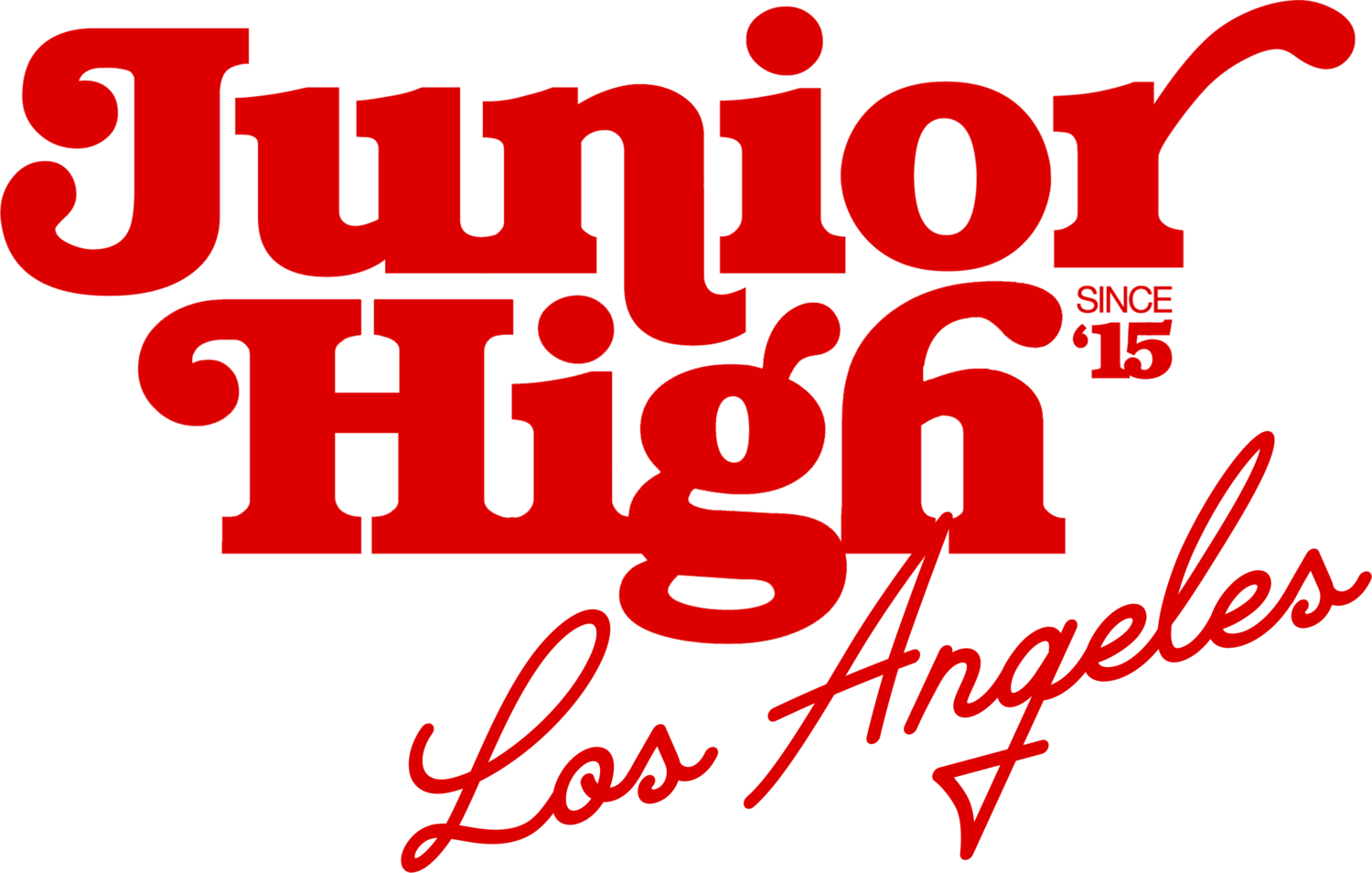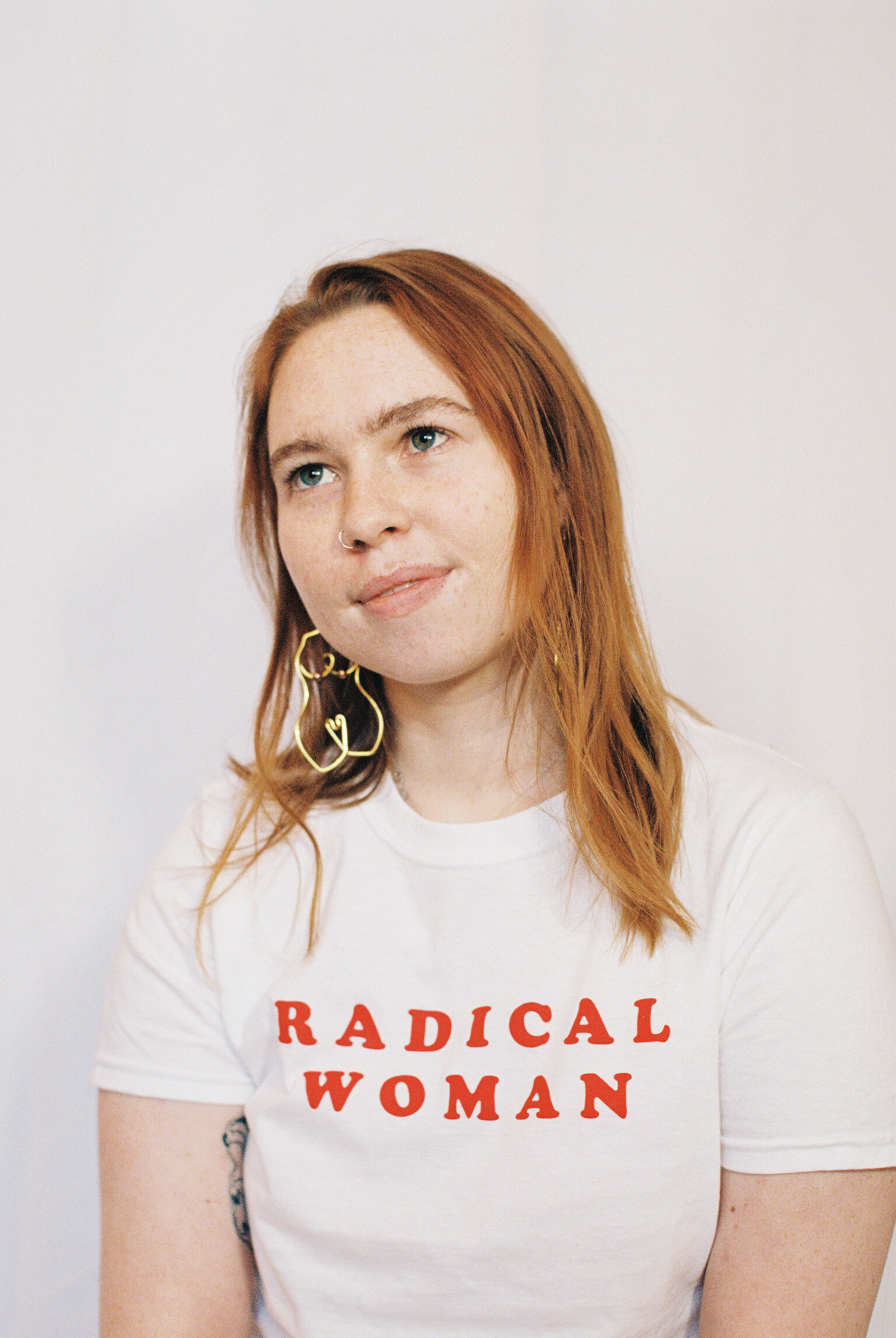Ezra Wheeler
⤏ IN CONVERSATION WITH KYLIE ANDERSON
⤏ PHOTOS BY CARLY PALMOUR
⤏ ORIGINALLY PUBLISHED MARCH 2019
Ezra Wheeler has always been motivated by a passion for social justice. At 13 years old, they turned to the internet to learn directly from the experiences of underrepresented communities and find opportunities to work toward inclusion beyond their hometown. Now, Wheeler is utilizing the online community they’ve cultivated to make activism more accessible and ensure every story is heard.
*NOTE FROM THE EDITORS 1/15/2021: A previous version of this feature contained mentions of Ezra’s deadname. The piece you are about to read has been edited to remove all of these references. Please keep this in mind as you read through this piece which might reflect opinions they no longer holds.
KYLIE: Intersectionality and accessibility in activism are central to your work. When did you first recognize ableism and non-inclusivity in that space?
EZRA: I have a genetic connective tissue disorder called Ehlers-Danlos syndrome, and although I've had minor symptoms my whole life, the true onset was around the same time that I began getting more involved in activism. I had a very unique experience because I had seen what it was like to be an abled activist and then a disabled activist, and the stark contrast between the two. The inaccessibility and ableism were very apparent to me right away because I was living it, but it didn't seem to even cross most people's minds — not necessarily out of malicious intent, but oversight. But inaccessibility and ableism are incredibly harmful, and we need to do better.
Some of the most pervasive examples of ableism and inaccessibility in activism and feminist communities are simply the total lack of acknowledgment of disabled experiences. It's a vicious cycle because these spaces are inaccessible to us, so our stories are never heard, which means nothing ever changes. Other ways this manifests is the trivialization of online activism as opposed to "IRL" activism. Online activism is valid and effective. The actual spaces in which activism transpires are often incredibly inaccessible, and accessibility means more than simply having ramps. A lot of activists often don't really know what ableism is and don't understand that accessibility is not optional, and that inaccessibility is dangerous and violent.
K: Through social media you offer unique, generous insight into your experience. What is it like having a somewhat public persona? Has your life or work changed since you’ve gained a social media following?
E: Because I choose to share aspects of my life in the public space, people often feel they are entitled to me. It can be as innocent as feeling entitled to my emotional labor to incredibly cruel comments. Aside from that though, my online presence has offered me a newfound community of like-minded people which has given me a great group of friends, opportunities to further my activism work, and a general sense of camaraderie.
There will always be those who feel entitled to every aspect of who I am, but I wouldn't give it up for anything because I simply can't at this point. I am far too passionate about the work that has to be done and I am so grateful for the opportunities, and friendship, and growth that has come from it.
K: I love your poetry and the writing on your blog. What inspires your writing?
E: Anything and everything inspires my writing. I am obviously very influenced by my own experiences as a queer disabled activist, but I also love writing about love and simple, everyday things. I have always been a writer and it has simply been my way of putting words to these experiences that felt so big and unexplainable to me.
“These spaces are inaccessible to us, so our stories are never heard, which means nothing ever changes.”
K: Your group, We Exist Collective, is a revolutionary initiative for accessible activism. How did it start, and what are your plans for growth?
E: I had been talking about and fighting the ableism and inaccessibility in feminism and activism for a couple years prior to starting We Exist. I created the collective because I couldn't find anything like it when I was looking. I knew there had to be a space for and by disabled activists. At the core, it is a place where disabled voices and experiences are prioritized, and it aims to shed light on our struggles in order to ignite change.
My plans as it grows are to, first and foremost, hold strong to those core beliefs. We are working on a lot of projects currently, including an informative guide for teachers on how to create an accessible learning environment. We are also putting together an anthology of exclusively disabled voices, and working with individual activists and groups to help support their work — financially and otherwise — to further this change. I can't wait to see what the future holds, I am amazed time and time again by this community and I fall in love with it over and over again.
K: For people who want to make their voice heard but aren’t sure exactly how, where do you suggest they start?
E: Every person has a lived truth that is valuable. I don't know if there is even a right or wrong way to go about making yourself heard, but I do know this: your voice matters and your voice can be incredibly powerful if you let it. One simple way is through social media; it truly can be so powerful and it is something a lot of people have access to.
K: Have you seen any improvements in the activist space toward greater inclusion? What do you think it will take to reach intersectional equity?
E: I think there has definitely been a shift in a lot of activist spaces which has caused a greater fervor to seek out disabled voices and do the work better. The general pervasiveness of the internet has also helped to legitimize online activism, and we have seen countless times that it truly is effective and valid and accessible. We still have work to do though. We need disabled folks in all planning and execution of social justice events, and even simply in discussion. There are so many incredibly talented, driven, and knowledgeable disabled activists out there already doing the work, we just need to listen.
⤏ BUY THE PRINT EDITION OF JR HI THE MAGAZINE | ISSUE 005 HERE.
⤏ KYLIE ANDERSON (SHE/HER) IS A WRITER, COMEDIAN, FILMMAKER, ASPIRING CHILL GIRL, AND CONSISTENT OVER-SHARER BASED IN LOS ANGELES. YOU MAY ALSO RECOGNIZE HER AS THE 1993 MICHELIN TIRE BABY.




